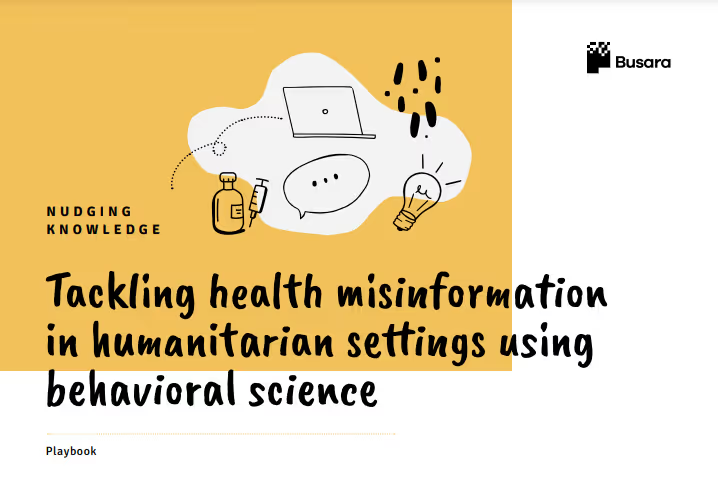Tackling health misinformation in humanitarian settings using behavioral science

This pilot randomized controlled trial (RCT), explored whether manipulating the source of public health information during the COVID-19 pandemic would shift the attitudes, knowledge and behaviour of refugees and internally displaced persons. While the research questions could not be answered, the study generated useful insights for researchers interested in similar questions.
This book is a guide on six curated behavioral insights to help you better understand how people form the beliefs that guide their behavior. Whether or not someone believes a piece of information depends;
- How they feel when they receive a piece of information (feelings)
- Whether they trust the source of information (trust in source)
- How often they have heard the information before (mere exposure effect)
- The information which comes to mind quickly and easily for them (availability bias)
- Whether the information supports their existing beliefs (confirmation bias)
- What others around them believe (social norms).
This guide unpacks behavioral insights that influence how individuals perceive, retain, use and act on information. Its goal is to provide operationally-relevant information - to humanitarian actors - on how to design information campaigns that lead to better health outcomes.